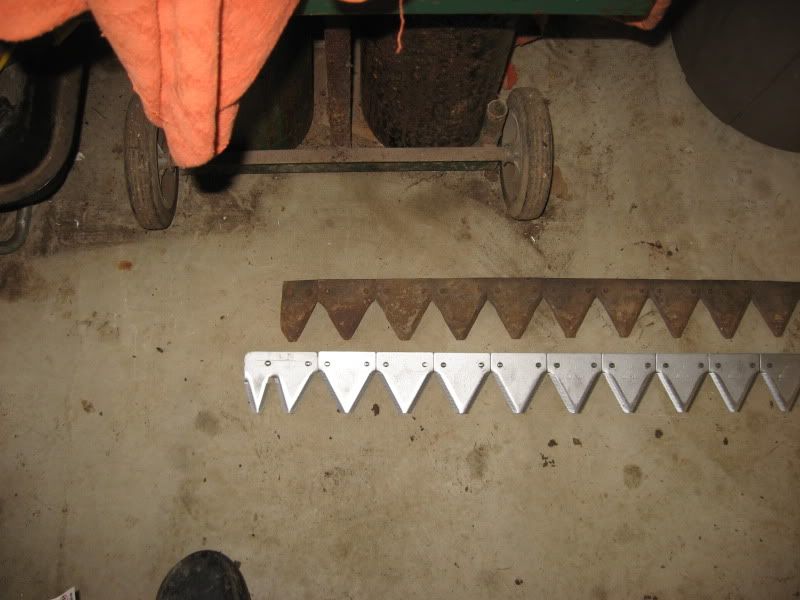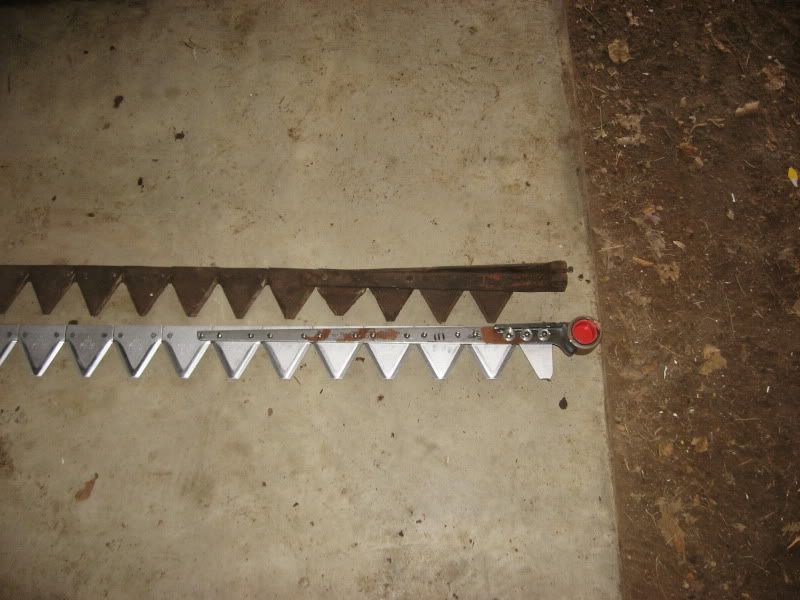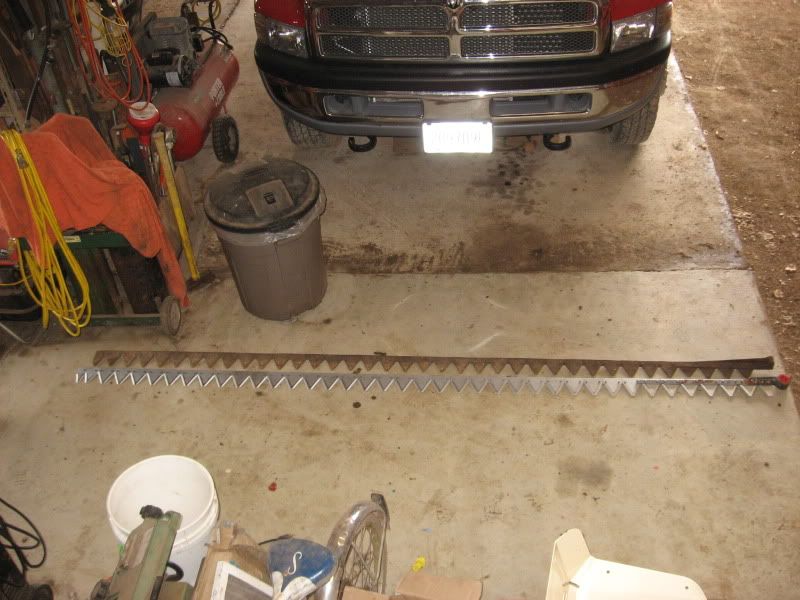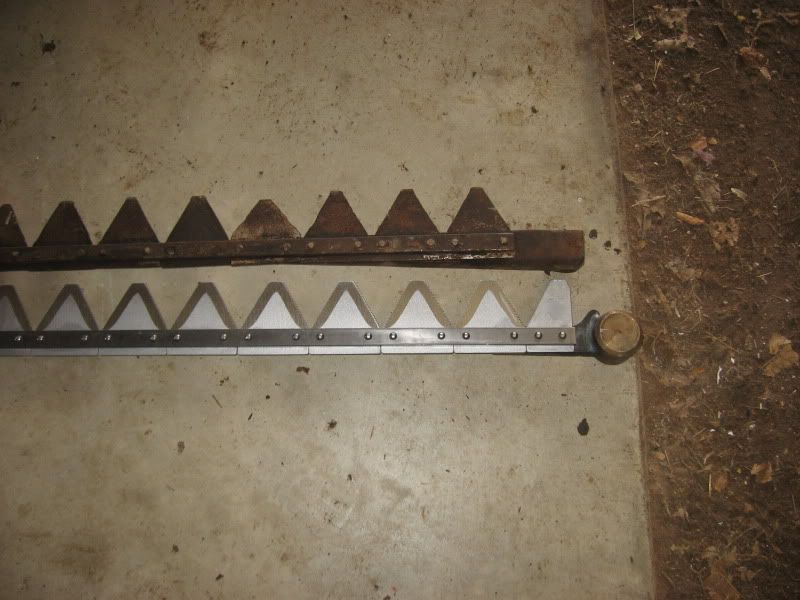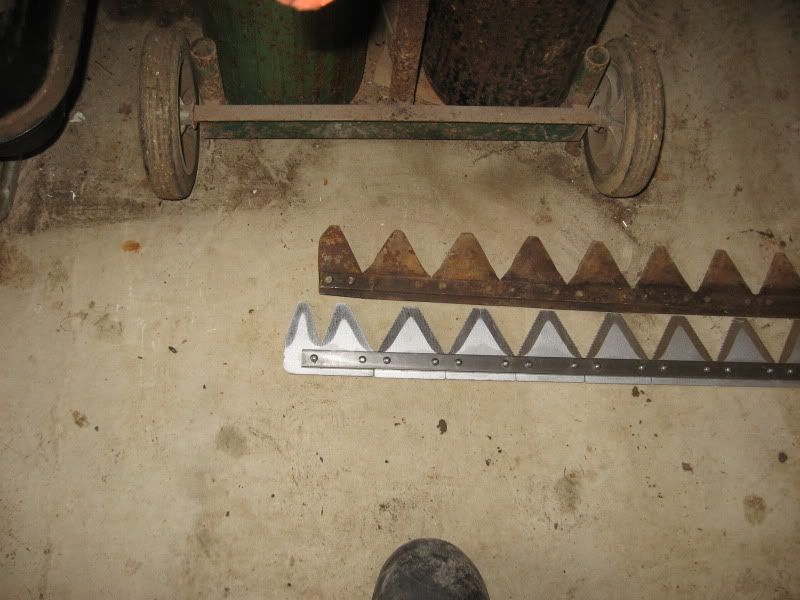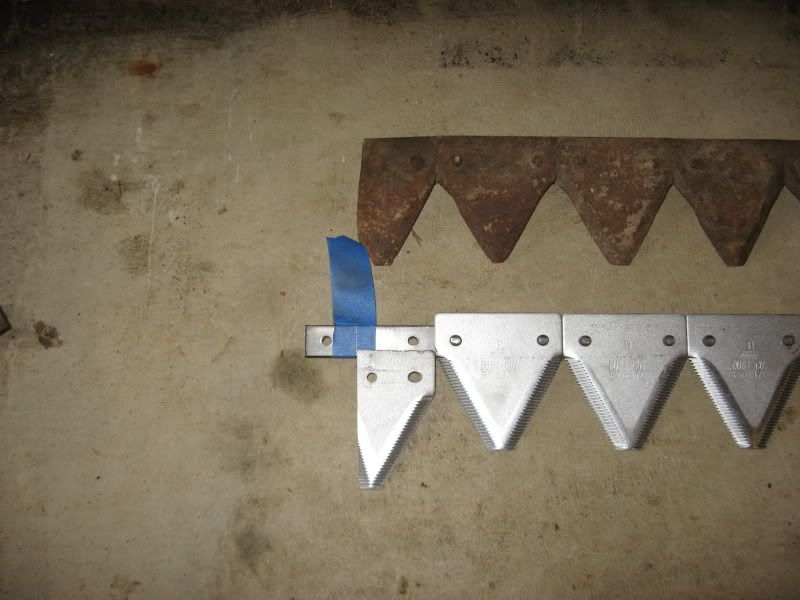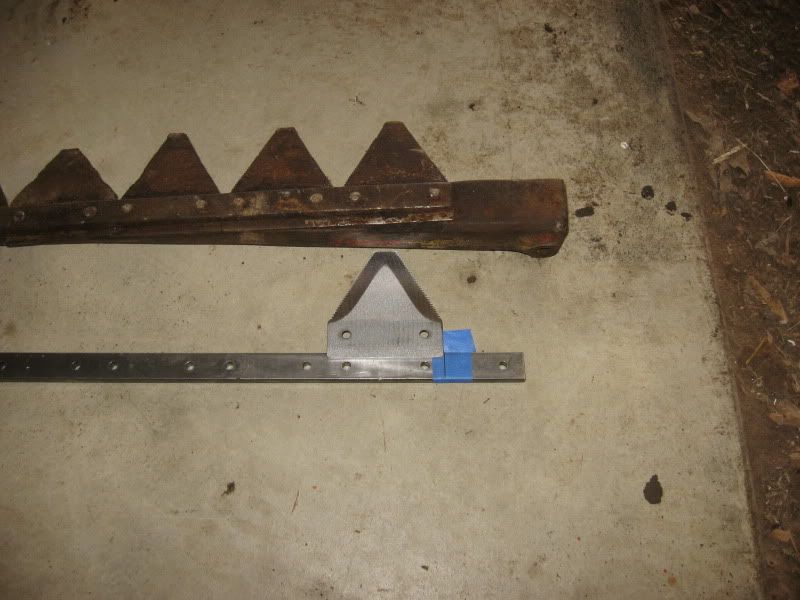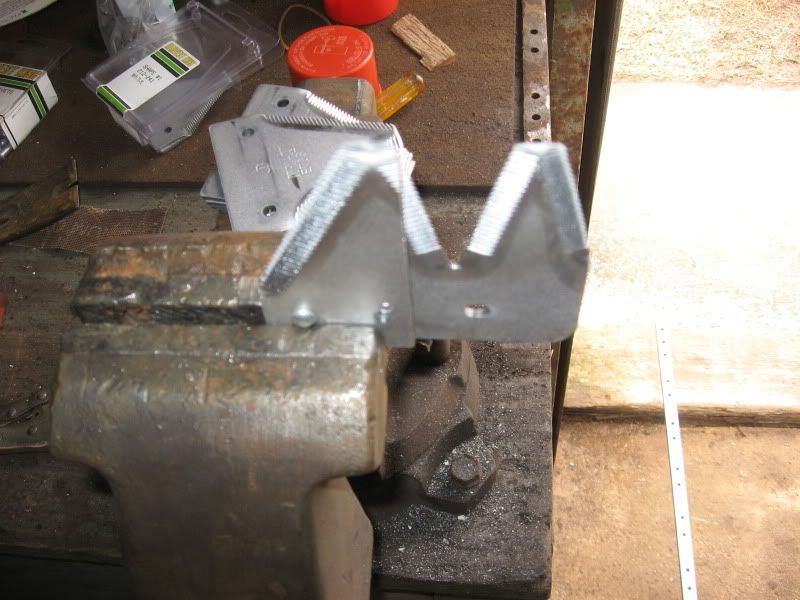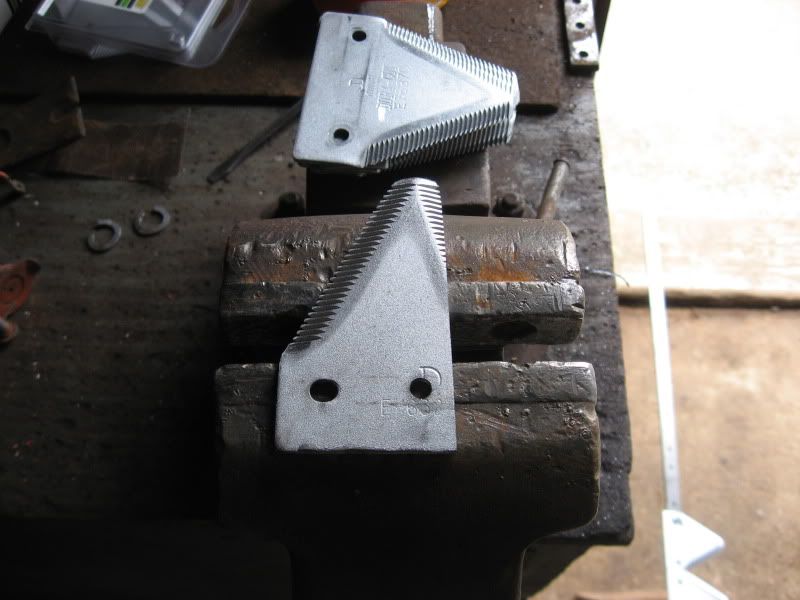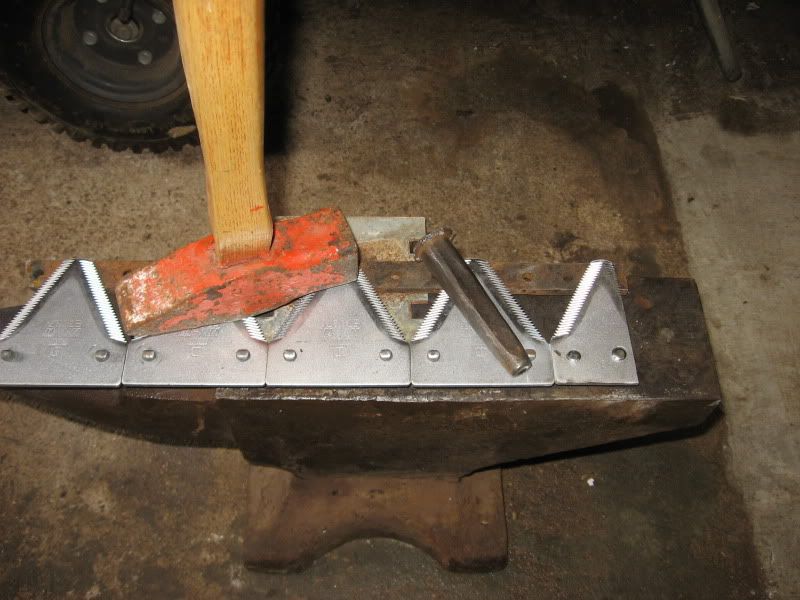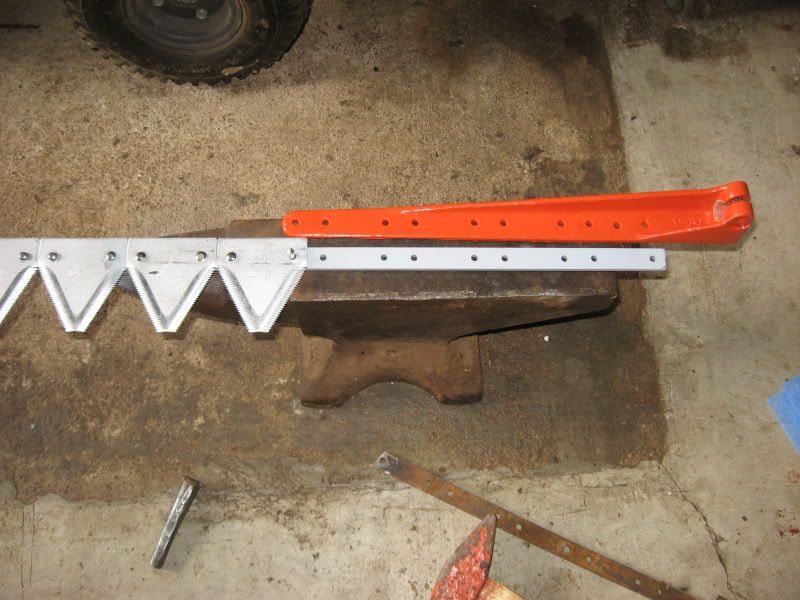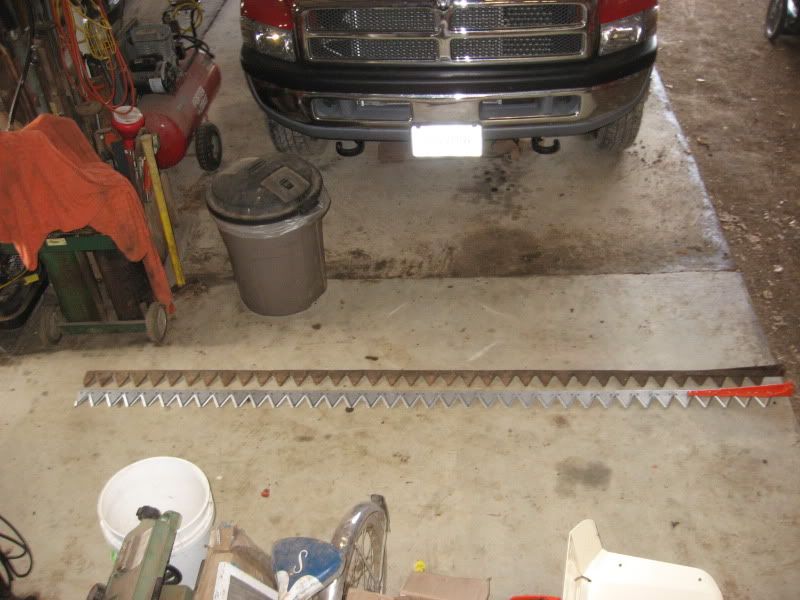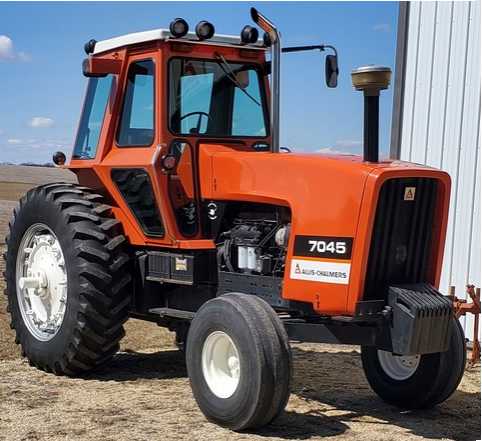Last year while cleaning out the shed I came across some old JD 1209/1219 sickles and I had an idea. I already knew that JD sickle sections had the same key dimensions as AC sections. But, when I started looking at the backing bar on the old sickles it seemed similar as well. After some measuring I found it had the same cross sectional size. Furthermore AGCO seems to have recently discontinued sickle bars for the AC haybines so the idea was born to convert a JD sickle to an AC sickle.
For my trial run I started with a near new Fleet Farm (JD) sickle that had a bad head, but all the pictures you will see are of the second bar I made with a brand new bar from JD. I would have liked to save the money and buy another Fleet Farm bar but Fleet Farm did not carry a riveted over-serrated bar. In case you are curious I ended up changing all the sections on the Fleet Farm bar to over-serrated after converting it.
For those who know, or as the pictures show, JD bars have a 1 1/2 section on the end of the sickle while AC has a 1/2 section and the rivet holes do not line up between the two on the backing bar.
Also, the drive end on a JD sickle has a dummy 1/2 section which makes the rivet holes on that end not line up.
Thus if one started from either end on a JD sickle all the sections would become mis-aligned. Luckily, JD backing bars are several inches longer than an AC bar so with cutting the proper amount off of each end of the backing bar one is able to re-align the sections. I briefly entertained the idea of making a small side business of making bars but time is short and shipping on a 10' item is cost prohibitive so below is the procedure to convert the bars. Hopefully this will help some people like me keep these old machines running a bit longer.
First line up both bars so the first full section from the non-drive end line up, then flip the bars over and you will get an idea of what needs to be cut off the JD bars.
Next, remove the drive head from one end and the 1 1/2 secition from the other end of the JD bar. Re-aign the bars and mark both ends of the JD backing bar for cutting.
Then, take the JD 1 1/2 end section, place the AC 1/2 section on top and mark the JD section to cut it down. After doing this put the AC section back on top and mark the JD section for a new second rivet hole.
After cutting the non-drive end of the backer bar it will then have to be drilled for the corresponding second rivet hole.
The drive end of the backer bar needs to be simply cut to length and no more needs to be done.
The last step is to rivet the 1/2 section on the non-drive end of the backer bar and rivet your salvaged AC drive head on the JD bar along with the sections removed while taking the JD head off.
Ignore the extra rivet hole in this AC head from the salvage yard as someone tried to scab it on a JD cutter bar already with out cutting off the end of the backer bar to re-align the sections. Because of this the rivet holes were not lining up do the 1/2 dummy section so they drilled an extra hole in the AC head, not properly centered to boot.
Below is the finished product.
In my case I simply wanted extra sickles on hand so if I break a section I can just switch bars in the field rather than try and replace the section with the bar in the machine or drive home and pull the bar. Because of this I needed extra AC heads. AGCO does still service that part but it is a bit pricey, I was able to get one from a salvage yard for half the price. I just blasted and repainted it before installing it in the sickle bar. Below should be the link to my album, to see all the pictures. Hopefully this will be of use to someone.










 Topic Options
Topic Options

 Post Options
Post Options Thanks(0)
Thanks(0)

